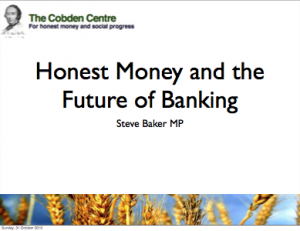If innovation is the secret of economic success and if the generation of wealth comes from the blending of scarce economic resources in new ways, then the spread of ideas is essential to help generate innovation and to help people think in new ways of how to blend old scarce resources.
So do intellectual property (IP) laws encourage the spread of such ideas or do they limit them? Do we therefore benefit from laws involving intellectual property or are we limited by them? Does intellectual ‘property’ even exist as a valid concept?
There are many arguments both for and against IP and most people have an opinion on the matter. My favourite of these arguments, found in the book Against Intellectual Property, by Boldrin and Levine, is that there are few really famous English classical composers (as compared to German ones, for instance), not because the English are congenitally unmusical — though some may claim this! — but because intellectual property laws were most developed in England during the golden age of classical music. Hence, innovation in music was stifled to death in England by the straitjacket of intellectual property, particularly copyright, leaving us with Elgar as the sole Englishman playing up front in a world cup final of composers, up against a Germanic first eleven of Bach, Beethoven, Brahms, Haydn, Mahler, Mendelssohn, Mozart, Schubert, Schumann, Strauss, and Wagner in goal.
Yes, Handel can sub for both sides, but one suspects if forced to choose he would go with the Austro-Germans.
Whatever your opinion is on IP or on whether Henry Purcell should make the list above for the English, one of the foremost scholars in the world on this subject is Stephan Kinsella. If you have a spare hour to fill, I thought you might like to spend it watching a recent fascinating Stephan Kinsella lecture on the history of intellectual property, broadcast to promote Mises Academy’s latest online course, Rethinking Intellectual Property: History, Theory, and Economics:



Thanks for raising this, Andy. I thought this snippet from Osborne’s Telegraph article was ominous:
I assume that means they’re considering US-style software patents, which would be a nightmare.
I shouldn’t imagine that George Osborne’s bookshelf at home contains anything by Stephan Kinsella. But you never know, if he bumps into that nice Steve Baker in the lobby he might get some decent advice on the subject.